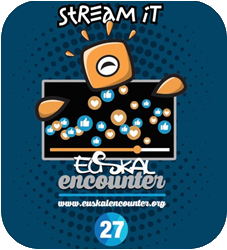We will inform you about the online talks and workshops that will be in the OpenGune.
Discord Channel Talks and Workshops
TALKS AND WORKSHOPS SCHEDULE*
Friday, July 24
11:00 AI - back to the future 4
15:00 How to switch from an Excel file to an AI model without a line of code
16:00 Data science and artificial intelligence: The digital transformation of society - new challenges
17:00 Artificial intelligence - Myths and truths
18:00 AI and Covid-19: Using artificial intelligence to prevent Covid-19 infections ![]()
19:00 The technologies that others dreamed about
19:30 Artificial intelligence in dermatology: can an algorithm detect skin cancer? ![]()
Saturday, July 25
11:00 Why NLP will be an AI revolution in the coming years
12:00 Artificial intelligence: current limitations and promising research
13:00 Unexpected data science: Let's have a laugh!
15:00 How an algorithm can learn to write books with deep learning techniques
16:00 TCP/IP stack in Linux
17:00 Orange: Machine learning at your fingertips
18:00 How the weather and other factors affect a retailer's demand
19:00 Presentation of the winning project in the Datathon University Hack 2020 - The BlaBlaCar case
Sunday, July 26
11:00 No-code solutions for AI & machine learning
12:00 Machine vision: now is the time to rethink old challenges
13:00 Data Analytics: the first steps towards becoming a data scientist
15:00 Introduction to live coding workshop: Programming live music and visuals
16:00 Game of Thrones: exposed opinions (via Scraping)
18:00 Videojuegos, esports y educación
18:00 Inteligencia artificial y música para el audiovisual (cine, TV y videojuegos) ![]()
19:00 How to make lightsaber animation in After Effects with Saber
*This programme is provisional and is therefore subject to changes that will be duly notified.
AI - back to the future 4
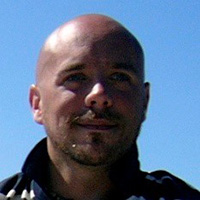 Language: Spanish
Language: Spanish
Speaker: Julen Manzano
Company: Dataset
Description of the session:
The birth of a new technology is accompanied by dreams that rarely come true. Over time we therefore abandon those hopes without looking back and think that everything was just science fiction. Will the same thing happen with artificial intelligence? Are we ready for the changes that are foreseen or will it all turn out to be an illusion worthy of a futuristic novel?
Brief Speaker CV:
Julen Manzano is a computer engineer, artificial intelligence project manager at Dataset and a lecturer on big data at the University of Pamplona.
Web:
Date: Friday, 24th of July, 11:00
Artificial intelligence: its beginnings in the world of video games and its application in science and business 
Language: Spanish
Speakers: Ibai Laña and Iñigo Martínez Criado 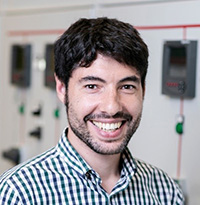
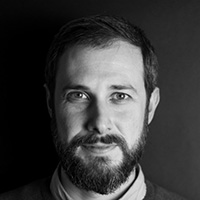
Company: Tecnalia
Description of the session:
Games, from board games to computer games, have helped develop technologies that have led to great progress in our society. Artificial intelligence (AI) is one of the technologies brought about by scientific progress that has been successfully used. This talk will cover the beginnings of AI in the world of games, how it has spread to different fields and its applications.
Brief Speakers CV:
Ibai Laña has a degree in IT Engineering from Deusto University, he has a Master of Advanced Artificial Intelligence from UNED, and a PhD in Artificial Intelligence from UPV/EHU. He is currently a senior researcher at TECNALIA, a member of the Basque Research and Technology Alliance (BRTA), where he works as a data analyst. He has also worked as a visiting professor at the Knowledge Engineering and Discovery Research Institute (KEDRI) at Auckland University of Technology (AUT).
Iñigo Martínez Criado has a degree in Computer Systems Engineering from UPV/EHU and a Master of Computer Engineering and Intelligent Systems from UPV/EHU. He works as a senior researcher at TECNALIA, a member of the Basque Research and Technology Alliance (BRTA), where he has taken part in a wide range of projects, such as improving various manufacturing processes in the machine tool industry, robotics and safety systems in the oil & gas industry. He is also a frequent contributor to Free Software and a member of the GNOME Foundation.
Web:
Date: Friday, 24th of July, 12:00
AI with maixpy, a low-cost device with a Kendrite processor that integrates a CPU and a knowledge processing unit (KPU) 
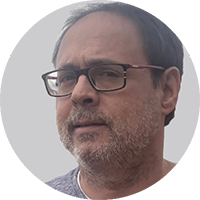 Language: Spanish
Language: Spanish
Speaker: Endika Etxebarrieta Perez
Company: Camp Tecnológico
Description of the session:
An approach to using electronic devices for artificial intelligence developments and image processing with the new Kendrite 210 processor, which includes a KPU to speed up convolutional processes. Low-cost devices for processing inferential models quickly and efficiently for imaging purposes.
Brief Speaker CV:
Endika Etxebarrieta Perez is a Saturdays AI mentor and Camp Tecnológico consultant.
Web:
Date: Friday, 24th of July, 13:00
How to switch from an Excel file to an AI model without a line of code 
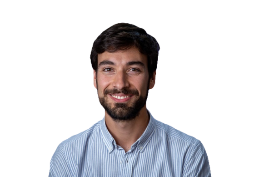 Language: Spanish
Language: Spanish
Speaker: Ignacio Vilaplana Sánchez
Company: Grupo Euskaltel
Description of the session:
We’ll see how almost any CSV or Excel file together with the appropriate software platform, in our case DataRobot, a Euskaltel partner, allows us to create an artificial intelligence model ready to be used in a few minutes without writing a single line of code.
Who is the target audience?
Anyone interested in seeing how companies benefit from AI.
Brief Speaker CV:
Telecommunications Engineer, Master of Finance and Financial Mathematics. Head of IA for the Euskaltel Group.
Date: Friday, 24th of July, 15:00
Data science and artificial intelligence: The digital transformation of society - new challenges 
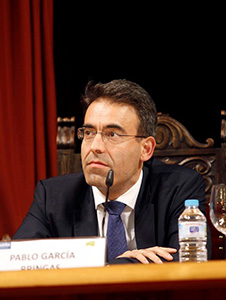 Language: Spanish
Language: Spanish
Speaker: Pablo García Bringas
Company: Universidad de Deusto
Description of the session:
Artificial intelligence algorithms have become an essential tool for processing and analysing the enormous amount of digital data that is generated every day in fields such as industry, health, intelligent cities, education, the environment, finance and government. It is having an impact on all areas of business and economic development. Furthermore, artificial intelligence has transcended the economic sphere and spaces for reflection are being created to focus on its social impact, on aspects such as the processing of personal data and how to train artificial intelligence systems based on ethical parameters that respect minority sectors and the most vulnerable. Due to their extraordinary complexity and high competitiveness, together with a high rate of technological change, the data science and artificial intelligence industries need professionals with a high-level, multidisciplinary training, market as well as technical know-how and an innovative and research-based approach.
Brief Speaker CV:
Pablo García Bringas has a PhD in Computer Science Engineering, specialising in artificial intelligence in the cyber-security field. He also holds an Executive MBA, a Master of Telecommunications and a Master of Industrial Computing. He is an associate professor at Deusto University. He is currently Vice-Dean of external affairs and life-long learning. He is the founder and head of Deusto's Chair of Digital Industry. Throughout his career he has worked with the private sector, implementing and developing research initiatives and the development of technology and innovation. He took part in the creation of the DeustoTech technology centre, where he has held several senior positions, including director of the centre. He has also held the position of head of research at the Faculty of Engineering. His research team, Deusto for Knowledge, has been acknowledged by the regional Basque government as an excellent research team. For 11 years he ran the Master of Information Security at Deusto and he currently runs the new Executive Industry 4.0 Programme. His CV includes over 100 R&D&i projects that he has been awarded and managed, he has more than 150 scientific publications, he has supervised 18 doctoral theses and he has raised over €11M. He has managed top global scientific academic events, such as DEXA, CISIS, SOCO, ICEUTE, HAIS, INFOSEC, BIGDAT and DEEP LEARNING BILBAO!
Web:
Date: Friday, 24th of July, 16:00
Artificial intelligence - Myths and truths 
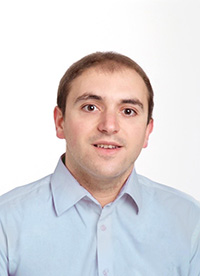 Language: Spanish
Language: Spanish
Speaker: Borja Balparda
Company: Data Value Management
Description of the session:
A lot is currently unknown about the real possibilities offered by artificial intelligence. This ignorance comes from a lack of knowledge about what can be done, a belief that it is a tool for large companies, and also from false myths about the true potential of artificial intelligence.
This talk aims to outline the real uses and potential of artificial intelligence. To do this, existing possibilities will be shown in a simple way with examples of artificial intelligence projects being carried out by Basque companies so as to demonstrate existing potential in the Basque Country.
Brief Speaker CV:
Borja Balparda (CEO & scientist at Data Value Management) is an economist with a Master of Big Data and Business Intelligence and also a Master of Economics and Finance. He also holds a PhD, cum laude, in Econometrics. His professional experience includes six years as a lecturer of statistics and econometrics at Navarra University and two years working in the consultancy firm Zubizarreta. Since 2018 he has been CEO and data scientist at Data Value Management and lecturer and head of the project management module on the Big Data Master at Navarra University.
Web:
https://datavaluemanagement.es/
Date: Friday, 24th of July, 17:00
AI and Covid-19: Using artificial intelligence to prevent Covid-19 infections 

Language: Spanish
Speaker: Unai Elordi Hidalgo
Company: Vicomtech
Description of the session:
The news and press have recently reported on several applications to prevent the spread of Coronavirus.
Applications such as temperature control, mobile apps for social distancing and even video surveillance systems that calculate crowds in certain areas are all known in this context.
Would you like to know how they work?
Given our broad experience in scientific fields such as artificial intelligence and machine vision, at Vicomtech we would like to share with you all the AI methods that we can use against Covid-19, from the easiest to the most difficult, which libraries to use and details of all processes in each algorithm.
Who is the target audience?
The talk is aimed at anyone who is interested in artificial intelligence and social distancing. We know that these kinds of apps are complex and require a high technical level. We therefore believe that this presentation should share scientific AI knowledge from a natural and general perspective, including technical details for those who are interested. We also want participants to learn how to think critically about these systems.
Brief Speaker CV:
Unai Elordi has been a researcher at Vicomtech's technological centre in the ITS (Intelligent Transport System) department since 2009. He has a degree in IT Engineering from the University of Mondragon (MGEP) and a Master of Computer Engineering and Intelligent Systems. He is currently doing a PhD in the field of deep learning. Since 2009 Unai has been working in the fields of 3D web and machine vision, specifically integrating and optimising the inference of deep learning models for embedded, mobile and Raspberry PI systems. Unai has worked in various intelligence fields, such as facial recognition, gender and age detection, emotions analysis, detection of dangerous objects, and people tracking in video surveillance.
Web:
Video:
Date: Friday, 24th of July, 18:00
The technologies that others dreamed about 
Language: Spanish
Speaker: Roberto C.
Company: EuskalHack
Description of the session:
This talk will look at old science-fiction books and how many of the different pieces of technology described by the authors are today a reality.
Who is the target audience?
Anyone with a taste for nostalgia or with an interest in science-fiction literature.
Web:
Date: Friday, 24th of July, 19:00
Artificial intelligence in dermatology: can an algorithm detect skin cancer? 

 Language: Spanish
Language: Spanish
Speaker: Alfonso Medela Ayarzaguena
Company: Legit Health
Description of the session:
This talk focuses on convolutional neural networks, a specific type of neural network that has revolutionised the world of artificial vision and enabled the development of cutting-edge applications in various sectors such as the automotive industry, finance, education and health. An explanation will be provided of what they are, how they are trained with real data and how they are applied in dermatology to detect skin diseases.
Who is the target audience?
For all audiences.
Brief Speaker CV:
Degree in Physics from the University of the Basque Country (UPV-EHU). He studied the last year of his degree in the Netherlands at the University of Groningen (RUG), where he finished the academic year with honours (grade: 9.0). As a result, he was selected to participate in the Talentia programme promoted by Bizkaia Talent, aimed at students living in the Bizkaia region with the greatest potential from the three Basque universities.
He worked in the technology consultancy GFI for BBVA, a Spanish bank, as a BI analyst for 5 months. He subsequently joined the Computer Vision Group of Tecnalia Research & Innovation to work on machine learning, deep learning and computer vision methods for solving complex problems in the fields of agriculture, industry and health. His specialty is training deep learning algorithms on small volumes of data, also known as few-shot learning.
He now works as CTO in the company he co-founded called Legit Health. Legit uses computer vision and artificial intelligence to enable skin disease diagnosis and therapy.
Web:
Date: Friday, 24th of July, 19:30
Why NLP will be an AI revolution in the coming years 
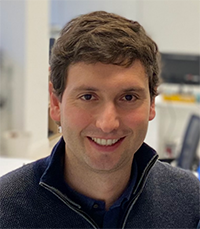 Language: Spanish
Language: Spanish
Speaker: Alberto Rezola
Company: Datu(a)
Description of the session:
Natural language processing (NLP) is a field that has been studied for many years, but it is only now (2019-2020) that a real revolution is taking place in this area, as happened with image recognition. The potential and applicability of NLP already has and will have a strong impact on the market. This talk will show why this is happening using examples of its potential uses and applicability.
Brief Speaker CV:
Alberto Rezola: Partner and head data scientist at Datu(a). 10 years of experience in advanced data analysis in different sectors: health and bioinformatics, industry, retail, banking and insurance. He has worked for two research centres; CEIT and Vicomtech. At CEIT he focussed his doctoral thesis on the integration of experimental data to theoretical models in biomedical applications. At Vicomtech he began managing and developing advanced analytical projects (NLP, ML, AI) in different industries: agro-food, industry, education and the environment, among others. During this time, Alberto led research projects applied mainly to SMEs and start-ups. Following this experience, Alberto decided to get involved in the world of entrepreneurship and start-ups, setting up different initiatives (Quarizmi Ad Tech, a start-up focused on generating algorithms that optimise the ads and bids in programmatic search engine advertising, M4L, a company whose main objective is to offer consulting and development services based on applying mathematical models to resolve real-life problems faced by companies). In 2019, he launched Datu(a), a data division of the Merkatu Group. Extensive experience in data projects in the industrial sector. They recently won the Bizkaia Open Future challenge, beating 28 start-ups and international companies. A challenge launched by GHI Smart Furnaces to predict the best time for loading aluminium scrap into smelting furnaces.
Web:
Date: Saturday, 25th of July, 11:00
Artificial intelligence: current limitations and promising research 
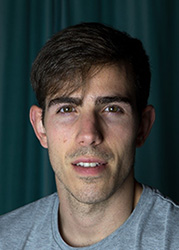
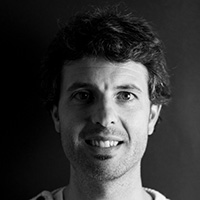 Language: Spanish
Language: Spanish
Speakers: Jesús (Txus) López Lobo and Alejandro Barredo Arrieta
Company: Tecnalia
Description of the session:
Contrary to the predictions of some experts, who think that AI will outpace humans in the future, things are going more smoothly than we think. Our AI has not reached the levels of intelligence and autonomy that we expected at this point, if we look at the forecasts in books, films, etc. from a few years ago. AI is still in its infancy. This talk will go over the most significant limitations of current AI, but will also cover some current research that invites optimism for the near future.
Brief Speakers CV:
Jesús (Txus) López Lobo has a degree in IT Engineering from Deusto University, a Master of Advanced Artificial Intelligence from UNED, and an International PhD in Information and Communication Technologies in Mobile Networks from UPV/EHU. He works as a data scientist and artificial intelligence researcher at TECNALIA, a member of the Basque Research and Technology Alliance (BRTA).
Alejandro Barredo Arrieta has a degree in Telecommunications Engineering from Deusto University, a Master of Artificial Intelligence from the University of Utrecht and he is currently doing a PhD in Artificial Intelligence at the University of the Basque Country. He has been a research assistant in the past and is the owner of and craftsman behind an online jewellery shop.
Web:
Date: Saturday, 25th of July, 12:00
Unexpected data science: Let's have a laugh! 
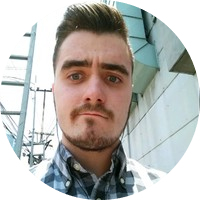 Language: Spanish
Language: Spanish
Speaker: Beñat Galdós
Company: GALDE
Description of the session:
Data science and AI are here to stay because of the high levels of productivity they encourage. Are there any amusing applications out there? Discover entertaining projects and be amazed!
Who is the target audience?
A todos los públicos, tanto aquellos que tengan experiencia en el ámbito de la IA como a los que quieran iniciarse en dicho ámbito.
Brief Speaker CV:
Beñat Galdós es doble graduado en Ingeniería Informática y Administración y Dirección de Empresas por la Universidad de Deusto. Con experiencia en los ámbitos de desarrollo web, marketing digital, seguridad informática y ciencia de datos, es uno de los cofundadores de AI Saturdays Donostia.
A su vez, es el fundador de Galde, una iniciativa empresarial que surge de sus proyectos fin de grado con la misión de automatizar el soporte a los usuarios utilizando técnicas basadas en Deep Learning. Además de esta vertiente, desde Galde se trabaja en desarrollos digitales de diverso tipo: desarrollos web, aplicaciones móviles y consultoría basada en el análisis de datos.
Web:
https://donostia.saturdays.ai/
Date: Saturday, 25th of July, 13:00
How an algorithm can learn to write books with deep learning techniques 
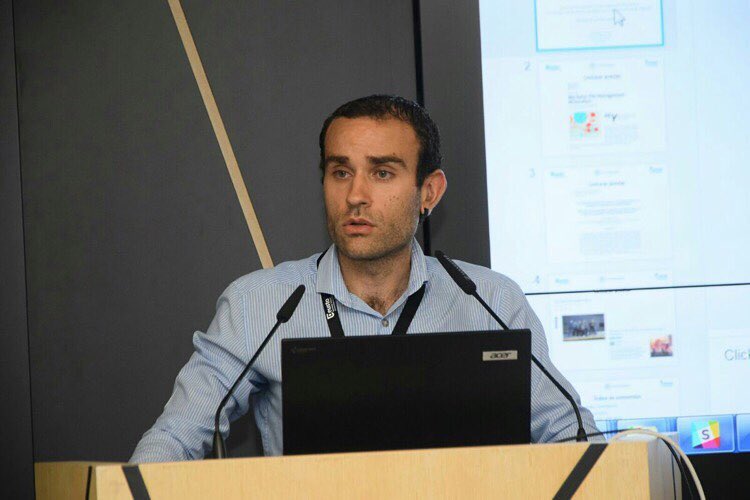 Language: Spanish
Language: Spanish
Speaker: Alex Rayón Jerez
Company: Universidad de Deusto
Description of the session:
Deep learning algorithms are techniques that stand out within machine learning due to their capacity to imitate how the human brain learns and infers. Within this field we can highlight RNN or Recurrent Neuronal Networks which can be associated with the temporal lobe, which handles long-term memory. In this talk we will learn how to use these RNN techniques through LSTM networks; a means of combining neural networks with memory that allows past predictions to be recalled to facilitate future learning. This helps to facilitate a historically complex field for traditional algorithms such as message writing (widely used, for example in chatbots). We can thus start thinking about the possibility of writing personalised messages based on the style that we learn during interaction with a person.
Who is the target audience?
Technical, functional and analytical (diverse and quite transversal).
Brief Speaker CV:
Alex Rayón Jerez (Bilbao, 1984) is the director of Deusto BigData and a lecturer in the engineering faculty at Deusto University. He holds a PhD in Computer Science and Telecommunications and his career has focused on advanced analytical and artificial intelligence techniques that allow evidence in decision making to be provided.
Web:
Date: Saturday, 25th of July, 15:00
TCP/IP stack in Linux 
Language: Spanish
Speaker: Roberto C.
Company: EuskalHack
Description of the session:
Overview of TCP/IP technology and its use in Linux.
Who is the target audience?
Talk for beginners on computer networks, aimed at anyone who would like to know how they work.
Web:
Date: Saturday, 25th of July, 16:00 - 17:00
Orange: Machine learning at your fingertips 
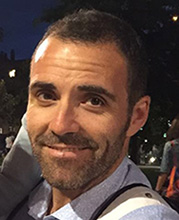 Language: Spanish
Language: Spanish
Speaker: Carlos Cernuda
Company: Mondragon Unibertsitatea
Description of the session:
Orange is an open source tool that allows us to carry out data analytics projects in a simple and very intuitive way. You don't need to know how to programme to make fully functional machine learning and visualization projects. You can perform both data analysis and intelligent data visualization. As well as many other functions, it allows you to explore statistical distributions, box and scatter plots, or to delve into decision trees, hierarchical grouping, heat maps, etc., etc. This is a living tool with a basic main core to which specific modules can be added for time-series studies or natural language processing among other things.
This conference will look at the features of Orange, the possibilities it offers and some examples that illustrate the potential of this open source tool.
Brief Speaker CV:
Dr. Carlos Cernuda was born in Oviedo on 4 May 1976. He graduated from Oviedo University in 2009 with a degree in Mathematics and was awarded a Master of Soft Computing and Intelligent Data Analysis in 2010 by Oviedo University and the European Center for Soft Computing. In 2014 he received his PhD in Engineering Sciences from Johannes Kepler Universität Linz (Linz, Austria) with a thesis titled "Advanced Data Mining and Machine Learning Techniques in Chemometric Modeling", co-supervised by Professors Erich Peter Klement (Johannes Kepler Universität Linz) and Ricard Boqué Martí (Universitat Rovira i Virgili de Tarragona).
From Sep. 2010 to Aug. 2014 and Sep. 2014 to April 2016, he was head researcher on two national projects in Austria with a total budget of over €11M. From May 2016 to November 2018, he carried out post-doctoral research at BCAM in the Data Science – Machine Learning department.
In December 2018 he joined MGEP (Mondragon Unibertsitatea) on the teaching and research staff (Personal Docente Investigador). His research areas include data mining, machine learning, multi-target variable selection and non-linear and regression classification models. His teaching focuses on analytics, specifically machine learning and deep learning.
Web:
Date: Saturday, 25th of July, 17:00 - 18:00
How the weather and other factors affect a retailer's demand 
Language: Spanish
Speaker: Félix Díez Urkidi
Company: Versia Procesos Operativos
Description of the session:
It describes the quantitative improvement in a business process - consumption format production - thanks to a one-week demand prediction. The prediction algorithms considered include factors outside the traditional consumption-related variables such as weather factors.
Who is the target audience?
The talk will be aimed at non-specialists: the characteristics of the business processes, the technology and the algorithms used will be described in simple terms appropriate to the target audience.
Web:
Date: Saturday, 25th of July, 18:00
Presentation of the winning project in the Datathon University Hack 2020 - The BlaBlaCar case 
Language: Spanish
Speakers: Ander Fernández / Alexander Seoane
Company:
Ander Fernández : Data Scientist – Lin3s
Alexander Seoane: Desarrollo de Negocio - Arkimedia
Description of the session:
A data-based business development model for the BlaBlaCar carpooling service, which analyses the route network and proposes an integrable solution to increase use of the current service and establish marketing strategies to develop the areas with the lowest rate of demand.
Who is the target audience?
Anyone interested in data-driven business.
Web:
Ander Fernández : www.anderfernandez.com
Alexander Seoane: www.alexanderseoane.com
Date: Saturday, 25th of July, 19:00
No-code solutions for AI & machine learning 
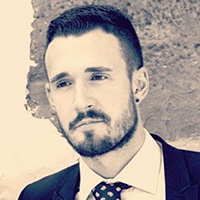 Language: Spanish
Language: Spanish
Speaker: Imanol Terán
Company: Widdiapps
Description of the session:
Many companies are using artificial intelligence and machine learning to improve processes in their respective businesses. Normally, very technical profiles, with knowledge of programming are required to be able to implement them.
Within the "no-code" movement, several tools have emerged from large technology companies which greatly simplify these processes, allowing different profiles within organisations to use them. In this talk, we'll learn about some of these tools, while reflecting on their use and possible implementation.
Brief Speaker CV:
Web developer, consultant and IT trainer.
Web:
@itermar
Date: Sunday, 26th of July, 11:00
Machine vision: now is the time to rethink old challenges 
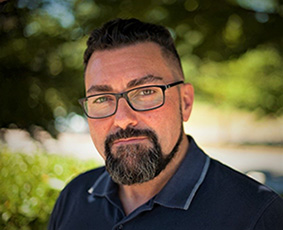 Language: Spanish
Language: Spanish
Company: José Ángel Gutiérrez Olabarria
Empresa: Tecnalia
Description of the session:
This talk will describe what the artificial intelligence revolution of recent years (deep learning and similar architectures) means for machine vision applications.
We will talk about what machine vision and image processing is within the industry 4.0 framework. We'll look at the highs and lows of traditional machine vision. We'll cover aspects and elements to be taken into account in traditional machine vision systems. We'll explain what changes have taken place since 2013. We'll present applications, practical examples of machine vision and the new deep paradigm and we'll draw some conclusions.
Brief Speaker CV:
José Ángel Gutiérrez Olabarria. He graduated from Deusto University in 1991 with a degree in Computing. He was awarded a Master of Robotics and Automation from ETSII/IT in Bilbao in 1992. He has undertaken PhD studies and has a Master of Advanced Studies from ETSII/IT. Since 1992 he has worked at Tecnalia. He works as head engineer, specialising in machine vision and sensors in the field of smart systems business, project managing industrial vision applications (under contract, Hazitek, coordinating European projects), analysing and designing software and C programming in quality control applications and industrial computing, as well as working as a project manager with customers and suppliers. He also gives courses and talks, etc. He has 6 patents and a large number of publications in this field. He was a 5th year lecturer on the Industrial Perception module within the Automation and Electronics specialisation at Deusto University's School of Engineering (ESIDE) from 2000 to 2006. Member of the Joint Scientific and Industrial Advisory Board of the E.M.V.A (European Machine Vision Association) Forum.
Web:
http://blogs.tecnalia.com/inspiring-blog/
http://www.computervisionbytecnalia.com
Date: Sunday, 26th of July, 12:00
Data Analytics: the first steps towards becoming a data scientist 
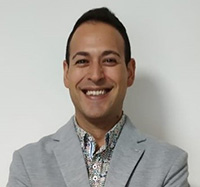 Language: Spanish
Language: Spanish
Speaker: Enrique Onieva Caracuel
Company: Universidad de Deusto
Description of the session:
The basic concepts of data analysis will be presented and put into practice using the R programming language in this workshop.
Who is the target audience?
Everyone with a desire to learn (it will be easier to follow if you already know about programming).
Brief Speaker CV:
Enrique Onieva is a lecturer in artificial intelligence, automatic learning and big data at Deusto University, as well as a researcher in intelligent transport systems applications related to data processing, mobility and smart cities in the DeustoTech-Mobility Research Unit. He is director of the Big Data and Business Intelligence programme and the Doctorate Programme in Engineering for the Information Society and Sustainable Development in the Engineering Faculty.
Web:
https://www.linkedin.com/in/enriqueonieva/
https://twitter.com/EnriqueOnieva
Date: Sunday, 26th of July, 13:00
Introduction to live coding workshop: Programming live music and visuals 
Language: Spanish
Speaker: Mikel Calvo Alonso
Description of the session:
The aim of this workshop is to introduce live coding, its philosophy and most interesting features. The first part introduces live coding, its philosophy and some of the most widely used languages for live coding. The second part will include a demonstration of a real time music session using TidalCycles.
This workshop is not intended to cover the handling of TidalCycles but to provide an introduction and resources to start live coding.
Who is the target audience?
Aimed at people who are interested in digital art and creative programming.
Brief Speaker CV:
Mikel Calvo is a designer and programmer and performs live coding under the name of Ofiuco. He streams musical improvisations through programming on his twitch channel.
Web:
Date: Sunday, 26th of July, 15:00
Game of Thrones: exposed opinions (via Scraping) 
 Language: Spanish
Language: Spanish
Speaker: Enrique Onieva Caracuel
Company: Universidad de Deusto
Description of the session:
The basic concepts of web scraping will be presented and put into practice using the R programming language in this workshop.
Who is the target audience?
All audiences, preferably with programming knowledge.
Brief Speaker CV:
Enrique Onieva is a lecturer in artificial intelligence, automatic learning and big data at Deusto University, as well as a researcher in intelligent transport systems applications related to data processing, mobility and smart cities in the DeustoTech-Mobility Research Unit. He is director of the Big Data and Business Intelligence programme and the Doctorate Programme in Engineering for the Information Society and Sustainable Development in the Engineering Faculty.
Web:
https://www.linkedin.com/in/enriqueonieva/
https://twitter.com/EnriqueOnieva
Date: Sunday, 26th of July, 16:00
Recommendation systems: everything you need to know about the algorithms used by Amazon, Spotify and Netflix 
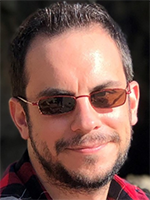 Language: Spanish
Language: Spanish
Speaker: Javier Pérez Marcos
Company: Smartup
Description of the session:
We will talk about less well-known recommendation systems that make use of context, social networks, etc., such as systems based on social links.
Who is the target audience?
It is aimed at all audiences, although a brief technical description of each system included in the paper will be given.
Brief Speaker CV:
Big Data Project Manager at Smartup, PhD student in Computer Engineering at the University of Salamanca with a thesis on Recommendation Systems.
Web:
Date: Sunday, 26th of July, 17:00
Videojuegos, esports y educación 
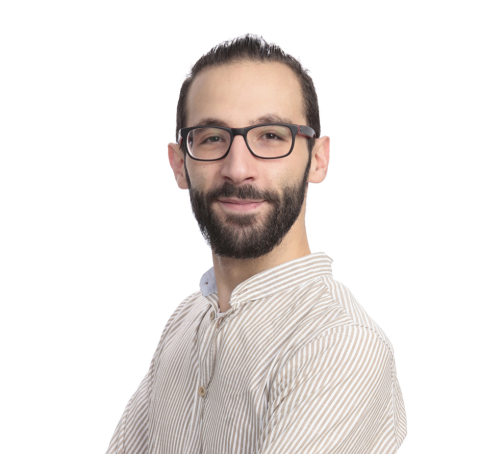 Language: Spanish
Language: Spanish
Speaker: Ignacio Mendoza
Description of the session:
El entorno digital comienza a ser una realidad en todos los contextos, ¿Pueden ser los videojuegos y los esports una manera de llegar a los más jóvenes?
Who is the target audience?
Profesionales del entorno digital, esports, educación y público en general.
Brief Speaker CV:
Pedagogo, Coach personal y Manager de esports.
Web:
https://www.twitch.tv/mendocoach
Date: Sunday, 26th of July, 18:00
Inteligencia artificial y música para el audiovisual (cine, TV y videojuegos) 
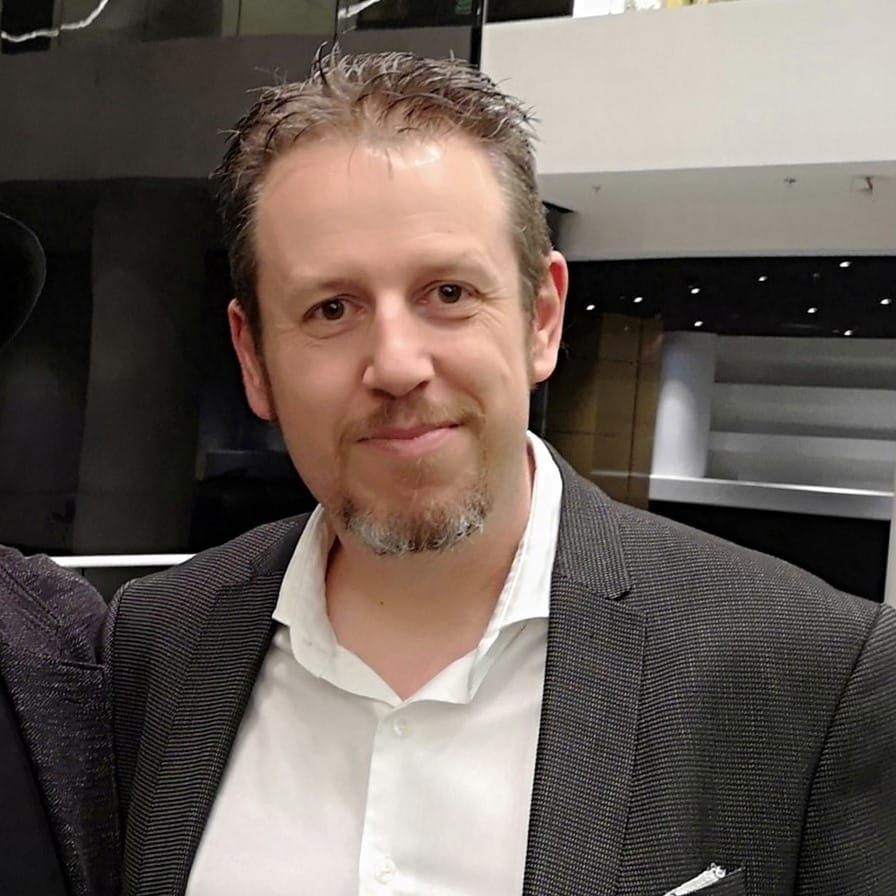 Language: Spanish
Language: Spanish
Speaker: Gorka Oteiza
Company: SoundTrackFest
Description of the session:
La Inteligencia Atificial aplicada a las tareas que tradicionalmente se han considerado "artísticas, creativas y abstractas", es un mundo con infinitas posibilidades por explorar. En esta charla hablaremos del aspecto relacionado con la música para el audiovisual: la música aplicada al cine, TV y los videojuegos. ¿Puede una IA sustituir a un compositor y generar música 'de la nada'? ¿Puede imitar un estilo determinado? ¿Es posible completar obras inacabadas de la música clásica? ¿Pueden las series, realitys y programas de televisión episódicos beneficiarse de la música generada 'al vuelo' por un ordenador? ¿Es posible que la IA de un juego pueda ir construyendo su música de forma personalizada, en función de los gustos del jugador y de la dinámica y la historia del juego? ¿Qué ocurre con los derechos de autor de las obras generadas por un ordenador? ¿A quién pertenecen? A lo largo de la ponencia, intentaremos abordar estas y otras cuestiones que puedan ser de interés en este apasionante múndo de la música "que no sólo se escucha, sino que se ve".
Brief Speaker CV:
Gorka Oteiza es Ingeniero Infomático por la Universidad de Deusto, con una gran pasion por la música de cine desde muy joven. Es el fundador y director de SoundTrackFest - Página web especializada en la música para Cine, TV y videojuegos. Desde ella cubre festivales y conciertos a nivel Europeo, escribiendo artículos y entrevistando a compositores (Hans Zimmer, Danny Elfman, James Newton Howard, Alexandre Desplat, Lalo Schifrin...)
Web: https://www.soundtrackfest.com/
Date: Sunday, 26th of July, 18:00
How to make lightsaber animation in After Effects with Saber 
 Language: Spanish
Language: Spanish
Speaker: Iker Hernandez Ibarra
Company: Sceners New Skool
Description of the session:
Theory about the tools to be used. This will be followed by a workshop in which a small animation will be developed using the saber plugin so that any text or any type of mask can be animated using light similar to a lightsaber.
Who is the target audience?
All audiences.
Brief Speaker CV:
Participant in Digital Art and Demoscene for various years.
Web:
Date: Sunday, 26th of July, 19:00


